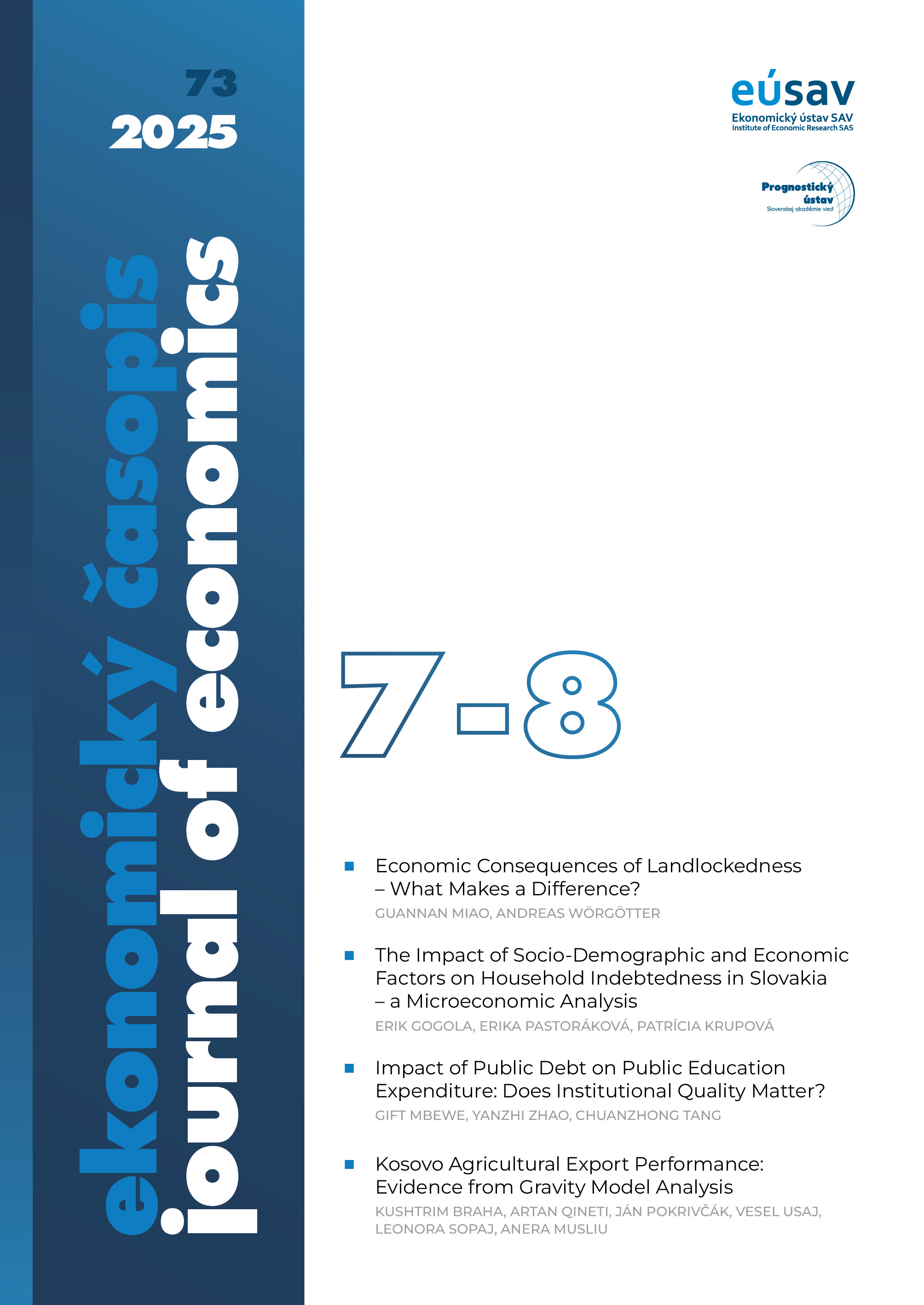The Impact of Socio-Demographic and Economic Factors on Slovak Household Indebtedness – a Microeconomic Analysis
DOI:
https://doi.org/10.31577/ekoncas.2025.07-08.02Abstract
In recent years, the low-interest rate environment combined with a positive macroeconomic outlook has led to a significant increase in the indebtedness of Slovak households. Analysing data from multiple waves of the Slovak Household Finance and Consumption Survey (HFCS), the paper investigates the impact of various socio-demographic and economic factors on the use of secured and unse-cured debt by Slovak households by employing logistic regression. The results of the study indicate that age has a statistically significant and negative impact on the probability of having a mortgage debt. On the contrary, the number of depend-ent children and gross wealth have a statistically significant and positive impact on the probability of indebted households having a mortgage debt. The findings are consistent with the life-cycle hypothesis, highlighting age as a significant fac-tor in shaping individuals’ engagement in the debt market. Moreover, our study shows that relatively high debt levels can be observed among the older indebted households in the last two waves of the HFCS. The high indebtedness among retired households may raise concerns about their social and financial stability.
Downloads
Published
Issue
Section
License
Copyright (c) 2025 Erik Gogola, Erika Pastorakova, Patricia Krupova

This work is licensed under a Creative Commons Attribution-NonCommercial-NoDerivatives 4.0 International License.


